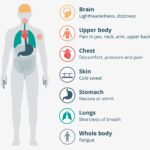Have you ever felt overwhelmingly sleepy after a satisfying meal, especially during lunch? This common experience, often joked about as a “food coma,” is scientifically known as postprandial somnolence. It’s that familiar urge to nap after Thanksgiving dinner, the struggle to stay awake driving home from a restaurant, or the heavy eyelids during an afternoon meeting after lunch. While you might have heard the myth about blood rushing away from your brain to your stomach causing this drowsiness, the real reasons are more complex and fascinating, involving a combination of bodily processes and behaviors. Although you might not completely eliminate this post-meal fatigue, understanding its causes allows you to take effective steps to minimize its impact.
Understanding Postprandial Somnolence: The Science Behind the Sleepiness
Postprandial somnolence, a term you might not hear every day, is simply the scientific way to describe that feeling of sleepiness after eating. It’s particularly noticeable in the early afternoon, coinciding with what’s often called the “post-lunch dip,” a natural dip in alertness that many people experience. Research has identified several biological mechanisms that contribute to this post-meal drowsiness:
- Increased Blood Sugar: Eating, especially a large meal or one high in carbohydrates, leads to a rise in blood glucose levels. The body releases insulin to help process this glucose, and this process can influence brain functions related to sleepiness.
- Hormonal Responses: Digestion triggers the release of various hormones in the gut and brain. Some of these hormones, like cholecystokinin (CCK) and glucagon-like peptide-1 (GLP-1), are involved in satiety but can also promote sleepiness.
- Vagal Nerve Activation: The vagus nerve, a major nerve connecting the gut and brain, becomes more active during digestion. Increased vagal nerve activity is associated with relaxation and can contribute to feelings of tiredness.
- Circadian Rhythm Influence: Our internal body clock, or circadian rhythm, naturally makes us feel sleepier in the afternoon. Eating a meal can amplify this natural dip in alertness.
Scientists speculate that postprandial somnolence might have evolutionary advantages, allowing the body to prioritize digestion and conserve energy after eating.
Is Post-Meal Sleepiness Normal? When to Be Concerned
Feeling a bit sleepy after a meal, especially lunch, is indeed very common. However, the intensity varies from person to person; some barely notice it, while others feel a strong urge to sleep. Interestingly, individuals who identify as “night owls” or those with Attention Deficit Hyperactivity Disorder (ADHD) might experience the post-lunch dip less intensely.
While occasional post-meal sleepiness is normal, it’s crucial to distinguish it from excessive daytime sleepiness. If you experience persistent or overwhelming sleepiness after meals that disrupts your daily life, or if it’s accompanied by symptoms like nausea, brain fog, or dizziness, it might warrant a medical check-up. Conditions like insomnia, sleep apnea, neurological disorders, endocrine imbalances, and mood disorders such as depression can also manifest as excessive daytime sleepiness. Consulting a healthcare professional can help identify any underlying issues.
 Person stretching after a meal
Person stretching after a meal
Dietary Choices: Foods That Intensify Post-Meal Sleepiness
While the act of eating itself contributes to postprandial somnolence, the type of food you consume plays a significant role in how sleepy you feel. Interestingly, even skipping lunch might not entirely prevent the afternoon dip, but certain foods are more likely to exacerbate post-meal fatigue.
- High-Fat Foods: Meals rich in fat have been consistently linked to increased feelings of fatigue after eating. Furthermore, diets consistently high in fat can disrupt nighttime sleep, leading to accumulated daytime tiredness, making you more susceptible to post-meal drowsiness. To minimize this, limit foods high in unhealthy fats, particularly saturated fats like fried foods, pastries, pizza, potato chips, and processed meats.
- High-Carbohydrate Foods: Meals heavy in carbohydrates, especially refined carbohydrates, are more likely to induce sleepiness compared to low-carbohydrate meals. Foods and drinks loaded with processed sugars and starches, such as sweets, sugary juices, and white bread, can cause rapid spikes and crashes in blood sugar levels, contributing to fatigue.
You might have heard about tryptophan, an amino acid found in foods like turkey, being responsible for post-meal sleepiness, particularly after large holiday meals. Tryptophan is a precursor to melatonin and serotonin, hormones that promote sleep. However, tryptophan alone isn’t the sole culprit. It’s the combination of a large meal, often high in both fats and carbohydrates, that creates the perfect recipe for significant postprandial somnolence.
Beyond Food: Other Factors Contributing to Post-Meal Fatigue
Sleepiness after eating isn’t solely about what you eat; the timing of your meals and your overall lifestyle also play crucial roles. For instance, eating lunch during the early afternoon naturally aligns with a dip in your circadian rhythm’s wakefulness signals, potentially amplifying sleepiness. Beyond meal timing, several other factors can contribute to or worsen post-meal drowsiness.
- Sleep Deprivation and Disrupted Sleep: Insufficient sleep or poor sleep quality significantly intensifies post-meal drowsiness. When you are already experiencing a high sleep drive due to lack of rest, the physiological changes after eating can push you further towards sleepiness.
- Blood Sugar Imbalances: Both high and low blood sugar levels can manifest as fatigue. Individuals with diabetes are particularly vulnerable due to challenges in regulating blood sugar, especially if they are not managing insulin levels correctly. Dietary choices, alcohol intake, and changes in physical activity can also lead to blood sugar fluctuations and subsequent fatigue.
- Iron Deficiency: Low iron levels can increase the risk of restless legs syndrome (RLS), which disrupts nighttime sleep and contributes to excessive daytime sleepiness, including post-meal fatigue.
- Alcohol Consumption: Alcohol is a known sedative, and its effects are amplified when you are sleep-deprived. Consuming alcohol with meals can significantly increase post-meal drowsiness.
- Chronotype: Your natural sleep-wake preference, or chronotype, also plays a role. “Larks,” or morning people, are more prone to experiencing post-lunch sleepiness compared to “night owls.”
Strategies to Minimize Post-Meal Tiredness
While you might not completely eliminate postprandial somnolence, several lifestyle and dietary adjustments can help reduce its severity and frequency:
- Eat Smaller, Balanced Meals: Opt for smaller portions and meals that are balanced in macronutrients, including lean protein, complex carbohydrates, and healthy fats. This can help prevent drastic blood sugar fluctuations.
- Limit High-Fat and High-Carbohydrate Foods: Be mindful of your intake of fatty and sugary foods, especially during lunch. Choose whole grains, lean proteins, and plenty of vegetables.
- Prioritize Protein-Rich Meals: Protein can help promote alertness and satiety without causing the same level of drowsiness as high-carbohydrate meals.
- Stay Hydrated: Dehydration can contribute to fatigue. Drink plenty of water throughout the day, especially with meals.
- Time Your Meals Wisely: If possible, avoid eating your largest meal during the natural afternoon dip. A lighter lunch might be beneficial.
- Get Regular Physical Activity: Regular exercise can improve energy levels and reduce overall fatigue, potentially mitigating post-meal sleepiness.
- Ensure Adequate Sleep: Prioritizing sufficient and quality sleep is crucial. When you are well-rested, you are less likely to experience intense post-meal drowsiness.
- Take a Short Walk After Eating: Light physical activity after a meal can aid digestion and help combat sleepiness. Even a 10-15 minute walk can make a difference.
- Consider Caffeine in Moderation: A small amount of caffeine after lunch might help some individuals stay alert, but be mindful of caffeine’s impact on nighttime sleep.
When to Seek Medical Advice
If post-meal sleepiness consistently interferes with your daily life, or if lifestyle adjustments don’t provide relief, it’s important to consult your doctor. Seek professional medical advice if you suspect your daytime sleepiness might be linked to an underlying sleep disorder, mental health condition, or if you experience other unexplained symptoms like fever or headaches alongside fatigue.
Seek immediate medical attention if you experience fatigue accompanied by any of these symptoms:
- Blurred vision
- Dizziness
- Swelling
- Confusion
- Inability to urinate
- Thoughts of self-harm
By understanding the multifaceted reasons behind postprandial somnolence and adopting proactive strategies, you can better manage post-meal sleepiness and maintain your energy levels throughout the day.
References
Note: The original article lists references as “6 Sources” without specific links. In a real-world scenario, these would be properly cited. For this exercise, we acknowledge the reference section exists in the original.
Learn More About Nutrition and Sleep
[Link to Nutrition and Sleep Articles from Original Article – Replicate as Links if possible]
About Our Editorial Team
[Link to Editorial Team from Original Article – Replicate as Links if possible]
Written by Lucy Bryan, Contributing Writer
Medically Reviewed by Dr. Lulu Guo, Sleep Medicine Physician

